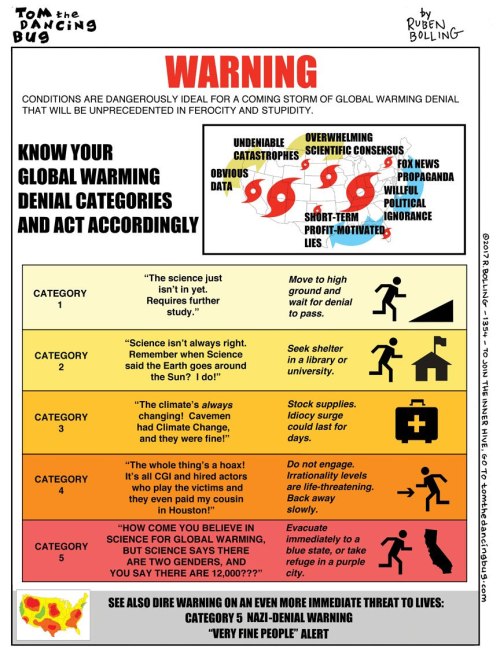An awful year and 2019 could be worse
By Will Collette

As most Progressive Charlestown readers have noticed, I have written far less than I have in past eight years.
In this past year, I have spent less time focused on Charlestown politics and more on the existential threat posed by the unindicted co-conspirator occupying the White House, Individual One.
He has done and continues to do many terrible things to this country and to much of the world. His dementia has become so apparent that only his die-hard supporters continue to believe his lies.
On the local front, Charlestown remains its own little island, deliberately aloof from the rest of the state and the world. The ruling Charlestown Citizens Alliance (CCA) has campaigned - and won - again on their record of protecting Charlestown from a wide array of threats, real or imagined, serious or exaggerated.
Their 2018 challengers, Charlestown Residents United (CRU), made a small dent in the CCA hegemony by running on a platform of "transparency" largely focused on criticizing the CCA's style of running town government. For its efforts, the CRU got Deb Carney elected to the Town Council and Charlie Beck elected as Town Moderator.
I found the campaigns run by both the CCA and CRU to be largely absent of ideas for the future, for how to make Charlestown a better place.
Maybe in the New Year, the spirit will move the Town Council to take up forward-looking issues.
Let's start with tax reform.
Charlestown's tax code is shot through with loopholes, especially on how property is valued, that give breaks to insiders and special interests such as
two town Fire Districts that don't actually fight fires but do receive amazing discounts on property taxes. Or
dubious open space or conservation property designations that reduce owners' costs to little or nothing.
CCA rejects the idea of the Homestead Credit, where full-time residents receive a tax credit for their commitment to actually living here.
Narragansett adopted this in February 2017. Almost every permanent resident applied. It didn't break the bank and there was no rioting in the streets by Narragansett's rich non-resident property owners.
I think it's time for Charlestown to revisit that issue.
Charlestown honors veterans, the clergy, the handicapped and others with
tax credits. That's fine, but there is more that could be done with tax credits, such as getting people to do positive things with their property.
For example, Charlestown could build on last year's
Solarize Charlestown program by offering tax credits to residents and businesses who install green energy power sources.
This approach could be applied to the myriad of regulations that come out of the Planning Commission governing business lighting, color of switchplates, mulch, parking, shrubbery and more.
Rather than simply impose more costs on local businesses, why not offer credits either as an alternative or as a salve to reduce the sting?
Conversely, the town could create a tax DEBIT, such as an
Asphalt Tax when new asphalt, rather than alternative, greener surfaces are installed. And while we're at it, Charlestown should
repeal its ban on small wind turbines for residential use.
Charlestown's real fire districts face a chronic shortage of volunteer firefighters. The town of Bristol addresses that problem by giving its volunteer fire fighters
tax credits on their home or car taxes and are looking at boosting those credits.
That's for starters.
I'd love the new Town Council to also deal with such neglected issues such as relations with our neighbors, the Narragansett Indian Tribe. They have a new chief sachem. And a certain amount of good will may still linger from
cooperative opposition by the Town and Tribe to the deal the old chief sachem made to sell water from the aquifer below all of us to the infamous Invenergy gas plant in Burrillville. Can Charlestown not find a way to reconcile with the Narragansetts?
I'd love to see the Town Council devise restrictions on permitting and contracting to prevent businesses and individuals with shady pasts from causing trouble for the town. Broadly known as
"bad actor" laws, we could then refuse to issue permits or spend town money with entities with a record of criminal or other legal problems.
A "bad actor" law would have made it easier to deny the Copar Quarry or Dollar Store permits.
But it's a new year and almost anything is possible.
 |
This is the Gavlebocken in 2016, the last time it was burned. It got
torched on the first day it was completed. |
I am pleased to report that our long-featured friend, the
Gavelbocken ("Gavle Goat") in Sweden survived for the second straight year. The giant straw goat is erected in the town square in Gavle, Sweden and someone came up with the idea that it would make a great bonfire.
So in most years, the Gavelbocken is usually reduced to ashes before making it to Christmas. But not this year.
And speaking of bonfires, once again
Frank Glista will be bringing some warmth to Charlestown by lighting up Charlestown's New Year's Eve bonfire at sundown in Ninigret Park.
If we try, maybe we can carry that glow into the new year.
 Rhode
Island State Senator Gayle Goldin (Democrat,
District 3, Providence) and Representative Edith Ajello (Democrat,
District 1, Providence) have pre-filed their legislation to enshrine the
reproductive health care rights protected by Roe
v Wade to defend against threats at the federal level.
Rhode
Island State Senator Gayle Goldin (Democrat,
District 3, Providence) and Representative Edith Ajello (Democrat,
District 1, Providence) have pre-filed their legislation to enshrine the
reproductive health care rights protected by Roe
v Wade to defend against threats at the federal level. 




































